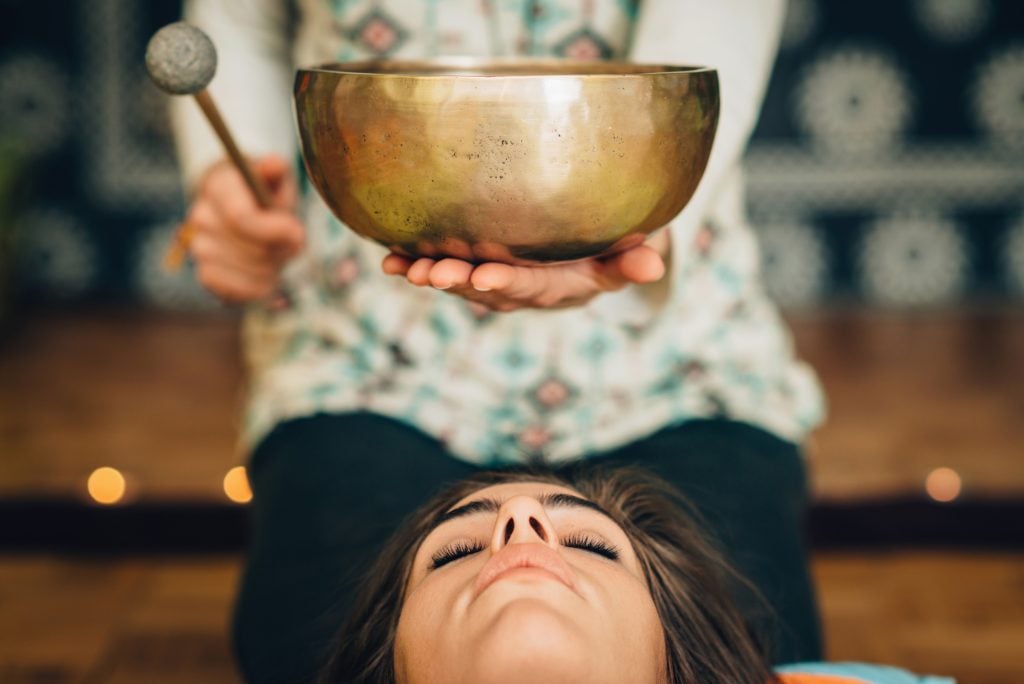Music therapy: how does it work?

Music therapy is a therapeutic process that uses music to treat its patients. It can bring several health benefits, as well as improve mood, concentration and logical reasoning.
Music is increasingly present in our lives. With technology, the ability to record and edit, electronic devices and streaming services, songs have become an indispensable item in our daily lives. But did you know that in addition to providing fun and wellness, music can also be used as therapy?
Receive all our tips by email!
Love Astrology? Subscribe Now and Receive Exclusive Content!
How does music therapy work?
Music therapy is characterized by regular encounters, which can be weekly or bi-weekly, at a particular location. The meeting is done between patient and therapist, and can also be done in groups.
In general, music therapy takes place in a music-therapy setting. In this setting, some musical instruments are arranged and there are moments when patients play and others in which the music therapist plays,. Many people think that the music therapist teaches their patients to play instruments, but this is not true. This professional is a therapist, not a music teacher.
Music therapy happens in a non-verbal way, all dialogue is done through the sonorities printed in the environment. The music therapist can work in rehabilitation clinics, psychiatric, regular and special schools, geriatric clinics and several other institutions.
According to Benenzon (1988), a scholar and precursor of music therapy, this treatment aims to open channels of communication in humans, in order to establish therapeutic, psychoprophylactic and rehabilitation effects in and individual and in the society.

The Benefits of Music Therapy
Music therapy encourages a good mood and, consequently, helps to reduces stress, anxiety and can be a good tool in treating depression. In addition, it provides the following benefits:
- It develops body expression;
- It improves respiratory capacity;
- It stimulates coordination;
- It promotes blood pressure control;
- It causes relief of headaches;
- It alleviates behavioral disturbances;
- It promotes quality of life;
Music therapy has been used more and more in hospitals, schools, nursing homes and with people with special needs. It can also be used during pregnancy, to calm and bring well-being to both mother and baby. It is important to emphasize that this therapy should be conducted by a professional specialized as a music therapist.
The effects caused by music therapy in the body
Music causes effects in a region of the brain that is responsible for emotions, thus generating motivation and affectivity, as well as increasing the release of endorphins – a substance produced by the body that brings the sensation of pleasure and joy. This result occurs because the brain responds naturally when it hears a song. Therefore, music can be used as a form of treatment, ensuring a healthier and more pleasurable life.
A survey released in 2014 in the PLoS One journal, noted how the brain behaves when it is under the effect of music. In this study, the researchers placed jazz musicians playing their instruments while doing magnetic resonance imaging of their brains. This practice showed which parts of the brain were activated when the musicians were playing.
Upon verifying that several regions were activated, the researchers asked the musicians to improvise together. This activity has enabled them to see that the brain, when musicians improvised a song together, works in a similar way as when we are talking with another person, face to face.
This discovery has come to support music therapy and its many benefits to communication processes, since the communicative areas that light up when we talk react the same when we are playing an instrument with another person.
In addition, music is capable of activating various regions of the brain that are responsible for our memory, such as the hippocampus. This allows it to be used therapeutically in patients who have neurodegenerative diseases, such as Alzheimer’s.
You may also like:
- 5 alternative therapies to try this year
- Naturopathy: what you should know
- Chromotherapy: colors to balance physical and emotional vibrations
- EMDR: a new therapy for old traumas
- Access Consciousness Bars: changing lives for the past 3 decades

